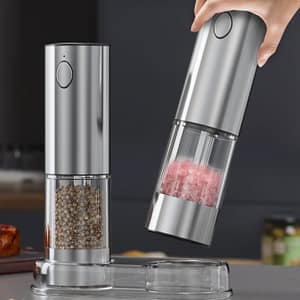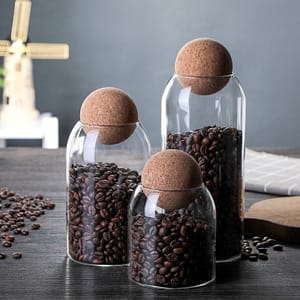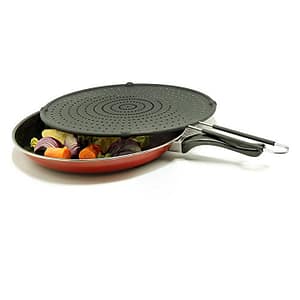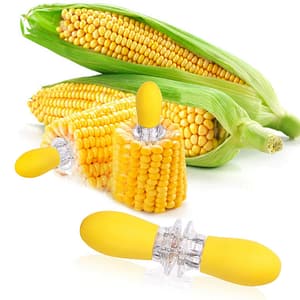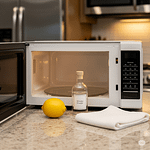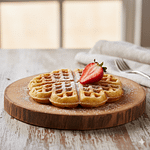
Blog Details

Why Your Tea Tastes Bitter (And 5 Foolproof Fixes)
There’s nothing worse than settling in for a cozy cup of tea, only to take a sip and cringe at the harsh, bitter aftertaste. Whether you’re a green tea lover or a black tea devotee, bitterness can ruin the experience. But don’t toss your tea stash just yet!
In this guide, you’ll learn:
🍵 Why bitterness happens (it’s not just about steeping time!).
🔧 5 easy fixes to transform your tea from bitter to balanced.
☕ Pro tips to elevate your brewing game with the right tools.
Let’s rescue your tea ritual!
Why Does Tea Taste Bitter?
Bitterness in tea primarily comes from tannins – natural compounds released when tea leaves are over-steeped, exposed to high temperatures, or low-quality leaves are used. While some tannins add depth, too many overwhelm the flavor.
5 Fixes for Bitter Tea (With Pro Tips!)
1. Stop Over-Steeping: Timing is Everything
The Problem: Leaving tea leaves in hot water too long extracts excessive tannins.
The Fix:
Follow recommended steeping times:
Green tea: 2–3 minutes
Black tea: 3–5 minutes
Herbal tea: 5–7 minutes
Use a kitchen timer or your phone alarm.
Pro Tip: Try the Lazy Sloth Tea Infuser with a built-in timer for precision. Its fine mesh prevents over-extraction!
2. Lower the Temperature: Not All Teas Need Boiling Water
The Problem: Boiling water scorches delicate tea leaves, releasing bitter compounds.
The Fix:
Ideal temperatures:
Green/White tea: 160–180°F (71–82°C)
Black tea: 200–212°F (93–100°C)
Herbal tea: 212°F (100°C)
3. Upgrade Your Tea Quality: Ditch Dusty Tea Bags
The Problem: Low-quality tea bags often contain “dust” or fannings, which over-extract quickly.
The Fix:
Use loose-leaf tea for better flavor control.
Opt for pyramid-shaped bags if using pre-packaged tea.
4. Soften Your Water: Minerals Matter
The Problem: Hard water (high in calcium/magnesium) amplifies bitterness.
The Fix:
Use filtered or spring water.
Avoid reboiling water, which concentrates minerals.
5. Measure Your Leaves: Too Much of a Good Thing
The Problem: Overloading tea leaves increases tannin extraction.
The Fix:
Use 1 teaspoon of loose-leaf tea per 8 oz of water.
Invest in a tea scoop for consistency.
Pro Tip: The Stainless Steel Measuring Spoons ensure perfect portions every time.
Bonus: The Perfect Tea Routine
Preheat your mug or teapot with hot water.
Use fresh, filtered water.
Steep with the Lazy Sloth Tea Infuser for easy removal.
Sip and enjoy bitterness-free!
FAQ Section
Q: Can I reuse tea leaves to prevent bitterness?
A: Yes! Steep green/white tea leaves 2–3 times (reduce steeping time by 30 seconds each round).
Q: Does milk reduce bitterness?
A: Yes! Dairy binds to tannins. Try a splash in over-steeped black tea.
Q: How do I store tea to keep it fresh?
A: Use Airtight Containers away from light and heat.
Conclusion
Bitterness doesn’t have to be the end of your tea journey. With the right techniques – and tools like the Tea Infuser or Electric Kettle – you can transform every cup into a smooth, flavorful experience.
Our Products
-
Unique Book Coffee Cup – Stack of Books Design
₹1,681.00 – ₹1,695.00Price range: ₹1,681.00 through ₹1,695.00 Select options This product has multiple variants. The options may be chosen on the product page -
Salt & Pepper Electric Grinder – Rechargeable
₹2,435.00 Select options This product has multiple variants. The options may be chosen on the product page -
Glass Storage Jar – Cork Lid & Minimalist Design
₹2,563.00 Select options This product has multiple variants. The options may be chosen on the product page -
Food grade Silicone Splash Screen – Mess-Free Cooking
₹2,158.00 Select options This product has multiple variants. The options may be chosen on the product page -
Stainless Steel Corn Cob Holders – Mess-Free
₹1,086.00 Select options This product has multiple variants. The options may be chosen on the product page -
Silicone Donut Mold – Makes 6 Non-Stick Donuts
₹833.00 Select options This product has multiple variants. The options may be chosen on the product page
Products
-
Unique Book Coffee Cup – Stack of Books Design
₹1,681.00 – ₹1,695.00Price range: ₹1,681.00 through ₹1,695.00 Select options This product has multiple variants. The options may be chosen on the product page -
Salt & Pepper Electric Grinder – Rechargeable
₹2,435.00 Select options This product has multiple variants. The options may be chosen on the product page -
Glass Storage Jar – Cork Lid & Minimalist Design
₹2,563.00 Select options This product has multiple variants. The options may be chosen on the product page -
Food grade Silicone Splash Screen – Mess-Free Cooking
₹2,158.00 Select options This product has multiple variants. The options may be chosen on the product page







